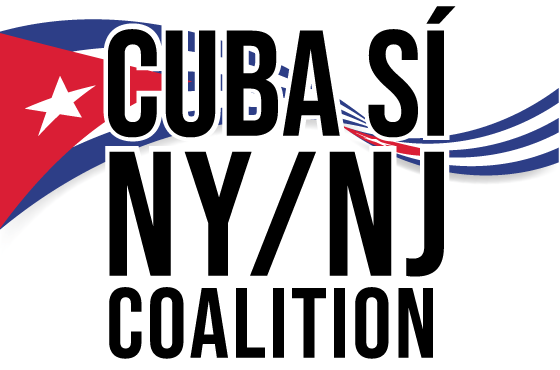A much more universal José Martí
3RD INTERNATIONAL CONFERENCE FOR WORLD EQUILIBRIUM
Pedro de la Hoz / Photos: Juvenal Balán & Jorge Luis González (GRANMA INTERNACIONAL)

A much more universal José Martí emerged from the 3rd International Conference for World Equilibrium, the closing session of which took place January 30 in Havana’s International Convention Center.
One of the most eloquent results of the conference, which brought together more than 800 delegates, is the José Martí World Solidarity Project Declaration and the commitment made by the Youth Forum, included on the event’s agenda.
The Declaration, signed by eminent intellectuals and read by Ignacio Ramonet, warns of the dangers of nuclear war, climate change and the social crisis produced by increasing inequalities within the dominant economic model. It identifies the growing strength of those proposing alternatives and fighting for peace and justice. To this end, Martí’s thinking has become a necessary reference and opens the way to a better world.
For their part, young people affirmed their commitment to promoting Martí’s ideas, fighting to end the U.S. blockade of Cuba and for the liberation of the Cuba Five serving unjust sentences in the heart of the empire.
In the closing session, attended by Council of State Vice President Esteban Lazo and Ricardo Alarcón de Quesada, President of the National Assembly of People’s Power, various speakers confirmed the value of the conference and the continuing relevance of Martí’s ideas. At the same time, they addressed significant current issues such as the new movement in Latin America and the Caribbean, solidarity with the Bolivarian process in Venezuela and its leader Hugo Chávez, the adoption of successful strategies against global hegemony, and the need to promote environmental solutions and protect nature.
INTEGRATION TO CHANGE THE HISTORY OF LATIN AMERICA
Former Brazilian President Luiz Inácio Lula da Silva advocated systematizing a doctrine of Latin American and Caribbean integration which would serve as an intellectual platform for the arduous tasks being undertaken in the region to fulfill Martí’s ideas.
His appeal was directed at participants in the 3rd International Conference for World Equilibrium, which closed with a dedication to the Cuban national hero on the 160th anniversary of his birth.
Full integration would contribute to changing the history of Latin America, Lula stated. “We must forge concrete unity among intellectuals, students, labor unions and social movements. We are constructing something that would have seemed impossible a number of years ago.”
Lula mounted the podium wearing a red guayabera shirt in honor of President Hugo Chávez, who is battling in Havana to recover his health, and expressed his happiness at having met a few hours earlier “with that great compañero Fidel,” and then with President Raúl Castro.
After asking for a minute’s silence in a tribute to the young victims of the tragedy in the university city of Santa Maria, the former President recalled the first time he spoke at the International Convention Center, in 1985, during an international meeting, led by Fidel, on external debt.
“Cuba has a very special significance. The moral authority constructed by this people in defense of dignity and sovereignty is even respected by those who do not sympathize with the Cuban Revolution,” he affirmed.
Referring to the five Cuban anti-terrorists unjustly sentenced in the United States, Lula recounted that, as President of Brazil, he interceded on behalf of the heroes on a visit to Washington during the George W. Bush administration.
“Unfortunately, it would seem that the Americans turn a deaf ear when the issue is about the problems of our beloved Latin America. I hope that in his second term, Obama will release the Five, end the blockade of Cuba and look more equitably and justly upon our region. Obama should have the same daring as his people had when voting for him.”
Lula shared some of his experiences as President over eight years, heading an administration which was able to reduce poverty, implement policies of inclusion and social mobility, give people land, and open new universities, policies now being extended by the Dilma Rousseff government.
In the last part of his speech, Lula called for a new political and economic order, the premises of which include the democratization of the United Nations and international financial organizations, and reiterated his confidence that the construction of a better world will become a reality sooner rather than later.
Positive contributions were made during the closing session by former Guatemalan President Alvaro Colom; Mikhail Ostrovski, Vice President of the Russian Civic Chamber; Jean Pierre Bel, President of the French Senate; and Ecuadoran Defense Minister María Fernanda Espinosa. Other speakers were Simon Deuseuil Desras, President of the Haitian Senate; former Foreign Minister Jorge Taiana and Senator María de los Angeles Higonet, both from Argentina; and the Culture Ministers of Venezuela and the Dominican Republic, Pedro Calzadilla and José Antonio Rodríguez, respectively. Havana City Historian Eusebio Leal closed the conference with a moving speech in which he recalled how, through the Moncada assault, Fidel restored the figure of Martí in order to illuminate the paths of resistance and dignity of the Cuban people after the triumph of January 1, 1959.
A much more universal José Martí

Comments are closed.